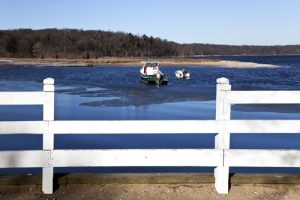
U.S. Rep. Lee Zeldin (R-NY) wrote in an op-ed on Monday that the Obama administration’s “overzealous and overly broad interpretation” of the Antiquities Act has caused great concern.
The administration’s recent marine monument designations have been the largest in U.S. history, banning fishing on Long Island and elsewhere in the country in perpetuity, Zeldin wrote.
“Protecting our land and water is one of my highest priorities; however, we must ensure that any efforts to create a marine protected area are done through a transparent process laid out by the Magnusson-Stevens fishery conservation law, not through executive fiat that threatens to put thousands of hardworking men and women out of business,” Zeldin said. “An effective way to conserve our ocean resources that allows for a thriving fishing economy has already been laid out through this landmark bipartisan law.”
President Barack Obama declared a 490,000 square mile area of the Pacific Ocean as a National Marine Monument in 2014. The move, Zeldin noted, lacked transparency and public input.
“Now, important fishing areas in the Northwest Atlantic, where fishermen from Greenport, Montauk and throughout the entire New York and New England region have worked for centuries, are under consideration for a National Marine Monument designation by the current administration,” Zeldin said. “As the president is pushing to apply this power to large areas of ocean in the Northwest Atlantic, he is threatening to shutdown thousands of square miles of ocean from Long Island fishermen through abuse of the Antiquities Act.”
Zeldin wrote that he believes in the “proud conservation legacy” of the Antiquities Act, but the bipartisan Magnusson-Stevens fishery conservation law had already outlined an effective way to conserve ocean resources while promoting a healthy fishing economy.
“Safeguarding the environment, while protecting the seafood economy, coastal communities, and the hardworking men and women of the seafood industry who provide for their families through fishing must be a priority for us all,” Zeldin concluded.



